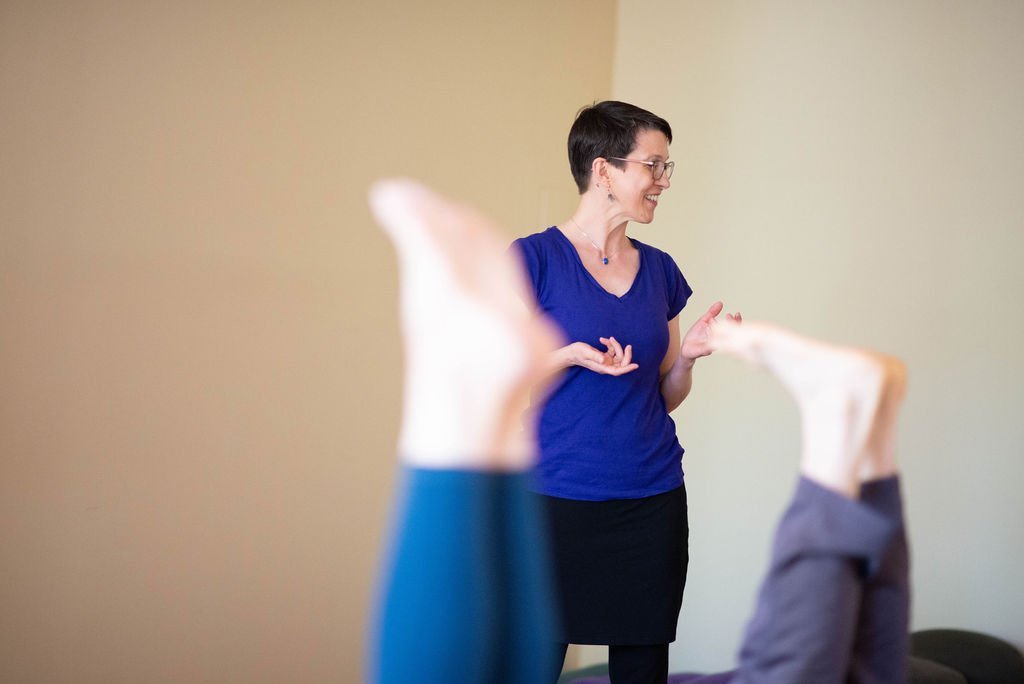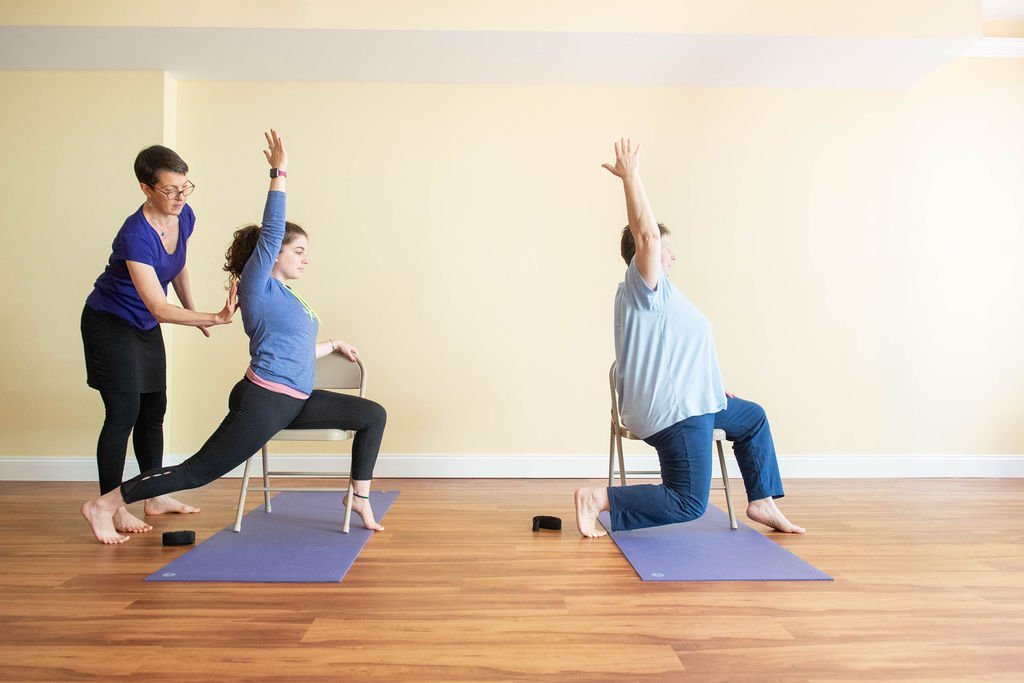10 Most Commonly Asked Questions About Yoga
Written by: Michele Lyman, RYT-500
I’ve been teaching yoga for almost 20 years, which means that I’ve been asked a LOT of questions about yoga. But there are a few questions that tend to come up time and time again. So today I'm sharing my answers to the most commonly asked questions so that you can feel more confident and informed as you begin or continue with your yoga practice.
Here we go!
1. I’m not flexible. Will I be able to do it?
That’s the whole point. It's like saying you're too dirty to take a bath or not strong enough to join a gym. You won't get clean without a bath and you probably won't get strong without the gym. Being flexible is not a requirement to practice yoga. It’s actually a result that you will experience over time.
2. How often do I have to practice the poses to see results?
It depends. First I would suggest determining your yoga practice goals. What sort of results do you want to achieve? Then, based on those goals, figure out how often you can practice. I personally think even after your first class, you’ll feel the benefits of yoga. Of course the more you practice, the more benefits you’ll experience. But, even just starting off with once a week is a great way to create a habit and start to experience the results you desire.
3. How is yoga different from stretching, or other kinds of fitness?
The practice of yoga is more than just physically moving your body. Within the physical practice you connect movements to the breath, which helps to focus and relax your mind. In a yoga class, you are asked to bring your awareness to the present moment - to focus on the here and now - using your body and breath as an anchor. This enhances your self-awareness so in time you start to notice more about how your body moves and what feels good or not so good. Yoga also asks you to be OK with what is, without judgment. Just because you aren’t as flexible as someone else, or not as flexible as you used to be, doesn’t mean you aren’t “good at yoga”. Over time you take these learnings off the mat and start to practice these concepts in your life as well. As the postures improve your strength and flexibility, yoga also improves your mental health and overall well-being.
4. Should I wait to eat before practicing the poses? Or should I wait to eat after?
In general, I would say eat at least 2 hours before practicing the poses. Of course it’s fine to eat something small if you need the nourishment to get through a class. Just don’t practice the poses on a full stomach. After practice, I would suggest waiting 15-30 minutes to eat. This just gives your body time to move away from the physical practice and get ready to digest.
5. Can I practice yoga if I’m overweight?
Yes, you can practice yoga at any weight, size or fitness level. Props and modifications can help anyone feel more comfortable in certain poses.
6. How do I know if I’m doing it right?
Before I dive into this one, it’s important to say that everyone’s bodies and bone structure are all very different, so there isn’t just one “right” way to do a pose. It’s about finding out what works for your own body. Developing this body awareness takes practice. As long as something doesn’t hurt, you are probably ok. You’ll definitely experience different sensations and feel your muscles working, but if you feel any type of “warning” pain, such as sharpness or pinching, make sure to listen to your body and come out of the pose slowly.
In my opinion, it’s always a good idea to go to a teacher in person if you are just getting started, so you can learn the foundations of the poses and reduce your chance for injury.
7. What is the best time to practice yoga?
The best time is the time that works best for you! Some students love to practice in the morning. Others prefer at night. Some students have to practice before their day gets started. Others have to wait until after work. It truly depends on your schedule and your personal constitution. I would suggest experimenting to see what feels best for you.
8. What are the different styles of yoga?
There are so many different styles of yoga, I have an entire blog dedicated to them! Some are fast-paced, others are gentle. Some focus on improving your joint mobility and others focus on relaxing your mind and quieting your nervous system. I love the variety yoga brings, because it’s easy to find something that works for you at any given moment. Check out my blog, “Types of yoga: The 10 most popular Styles Explained” to find out what types you might like to explore!
9. Can I practice yoga while menstruating?
I hate to say it again, but it depends. Some women prefer to pause their practice while menstruating while others continue practicing. I would suggest that you slow down your practice during your heavy flow days. On those days you only have so much energy to give and should not deplete yourself from practicing yoga. There is a lot of research out there on this specific topic, but again, my answer is to do what feels best for you.
10. Can yoga help me lose weight?
Yes! The postures combined with mindful breathing will help to detox your body, cleanse your digestive track and reduce your stress and anxiety. And that’s a good thing since stress is one of the biggest culprits of weight gain. As your self-awareness increases, you’ll also become more aware of why you are eating when you are eating. You might start to make healthier, more mindful choices. It won’t happen over night, but yoga can definitely help you lose weight.
OK! So there you have it! The top 10 most frequently asked yoga questions answered! Interested in getting started? Join us at Serenity Yoga in-person OR virtually! Your first 2-week introductory offer includes unlimited classes for only $49! We want you to try as many classes, teachers and times that work best for you before you settle into a routine. We can’t wait to meet you! Sign up Today!



